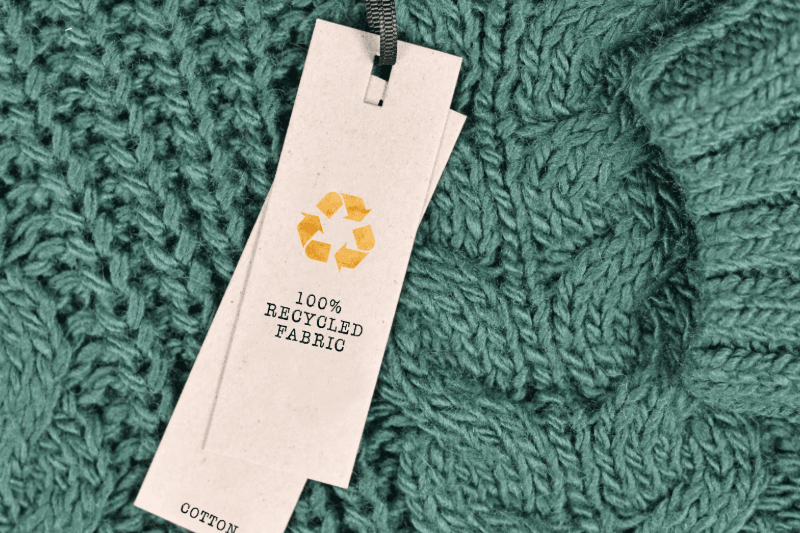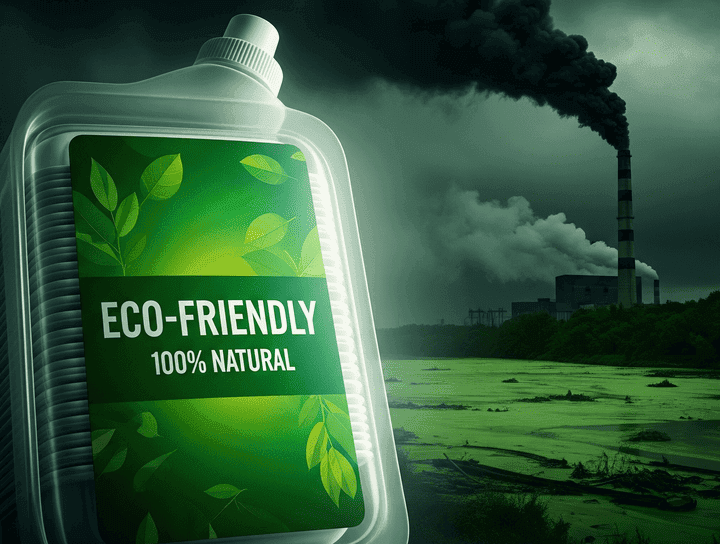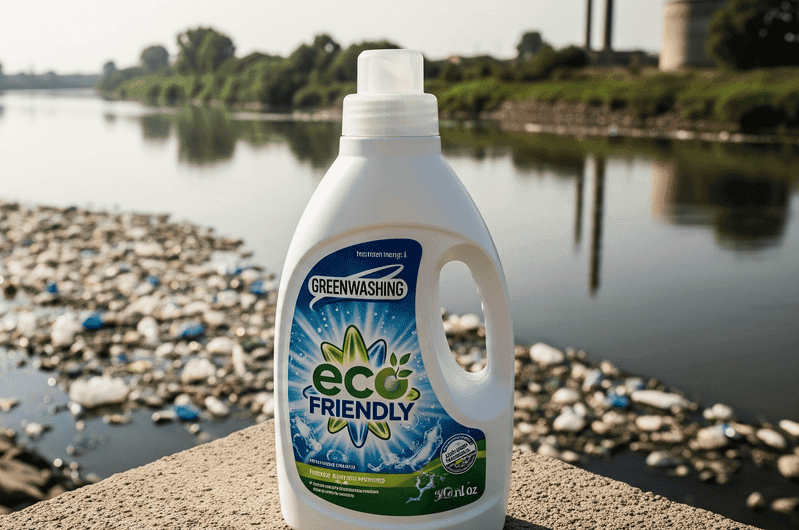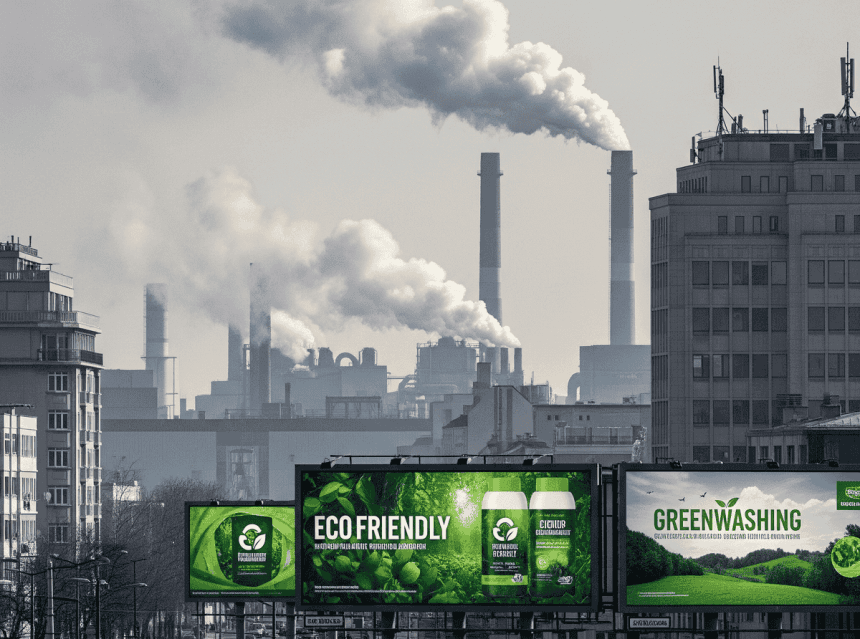In an era where sustainability and environmental responsibility are increasingly important to consumers, companies are eager to showcase their green credentials. But not all eco-friendly claims are what they seem. Welcome to the world of greenwashing—a marketing tactic that misleads consumers into believing a product or company is more environmentally friendly than it truly is.
What Is Greenwashing?
Greenwashing is the practice of exaggerating or falsely promoting environmental efforts in order to appeal to eco-conscious consumers. It typically involves the use of misleading labels, vague language, or superficial campaigns that overstate a brand’s actual environmental impact.
The term “greenwashing” was coined in the 1980s by environmentalist Jay Westerveld. He criticized a hotel’s campaign to reuse towels as a way to save the planet—while the hotel itself continued unsustainable practices elsewhere. Since then, the term has become synonymous with deceptive environmental marketing.
Common Forms of Greenwashing
Brands use a variety of tactics to appear greener than they are:
- Vague language: Terms like “eco-friendly,” “natural,” or “green” are often used without context. If there’s no explanation or standard behind them, they’re meaningless.
- Hidden trade-offs: A product may boast one environmentally friendly feature while ignoring other harmful impacts. For example, a bottle might be made from recycled plastic, but be produced in factories that pollute heavily.
- Irrelevant claims: Some products promote attributes that are not even regulated anymore, like claiming to be “CFC-free” when CFCs have been banned for decades.
- Fake labels or certifications: Certain brands create their own green-looking seals or labels to mislead buyers into believing they’re certified by a trusted third party.
- Overstated progress: Companies may announce ambitious environmental goals for 2030 or 2050, but have no short-term actions to back them up.
Real-World Examples
Greenwashing isn’t just a theoretical problem—it’s happening across major industries.
- Fast Fashion: Brands like H&M and Zara promote “conscious collections” made from recycled fabrics. Yet, their fast production cycles and excessive inventory contribute heavily to textile waste and overconsumption.

- Oil Companies: Some of the biggest oil firms run ads promoting their small investments in renewable energy, while 90% or more of their capital continues to support fossil fuel exploration.

- Consumer Goods: Products are often labeled as “biodegradable” without information on conditions or timeframes required for actual decomposition.

These marketing strategies create a distorted reality where consumers may feel like they’re making sustainable choices, when in fact they are not.
Why Greenwashing Matters
Greenwashing is more than just a marketing gimmick—it has real consequences. When companies make false environmental claims:
- Consumer trust is eroded: Once customers realize they’ve been misled, they may become skeptical of all sustainability messaging.
- Authentic brands lose visibility: Honest companies that invest in sustainable practices may be overshadowed by louder, deceptive voices.
- Environmental progress slows down: Misleading claims distract from urgent climate action and create confusion about which practices truly make a difference.
This erosion of trust can lead to consumer apathy, where people stop trying to shop sustainably because they no longer know whom to believe.
How to Avoid Greenwashing
Learning how to recognize greenwashing empowers consumers to make informed choices. Some practical steps include:
- Look for certification: Reliable third-party certifications like Energy Star, Fair Trade, USDA Organic, or FSC are better indicators of a product’s sustainability.
- Check for specifics: Credible companies provide concrete data and context. They don’t just say “we’re green”—they show how, with transparent practices and numbers.
- Read the fine print: Many green claims are buried in marketing language. Check company websites for detailed sustainability reports or supply chain information.
- Question broad statements: Phrases like “good for the planet” or “eco-conscious” are often too broad to mean anything unless supported by facts.
Regulation and Accountability
Governments and regulatory bodies are taking note of the problem. In the United States, the Federal Trade Commission (FTC) has published “Green Guides” to help ensure environmental claims are truthful and substantiated. The European Union is also working on standardized rules requiring companies to back up their environmental marketing with hard evidence.
Several watchdog organizations, such as Earth.org, regularly investigate and expose greenwashing practices. These resources help hold brands accountable and provide consumers with tools to verify sustainability claims.
Conclusion
Greenwashing undermines genuine efforts to combat climate change and creates confusion in the marketplace. As environmental awareness grows, consumers and regulators alike are demanding greater transparency and accountability.
By learning to recognize deceptive marketing tactics and supporting brands with verified, honest sustainability efforts, we can steer both our purchases—and our planet—in a better direction. The more we reward integrity, the more businesses will be compelled to deliver real, measurable change—not just slogans.
For example, smart thermostats are a tangible way to reduce energy consumption without greenwashing tactics.













